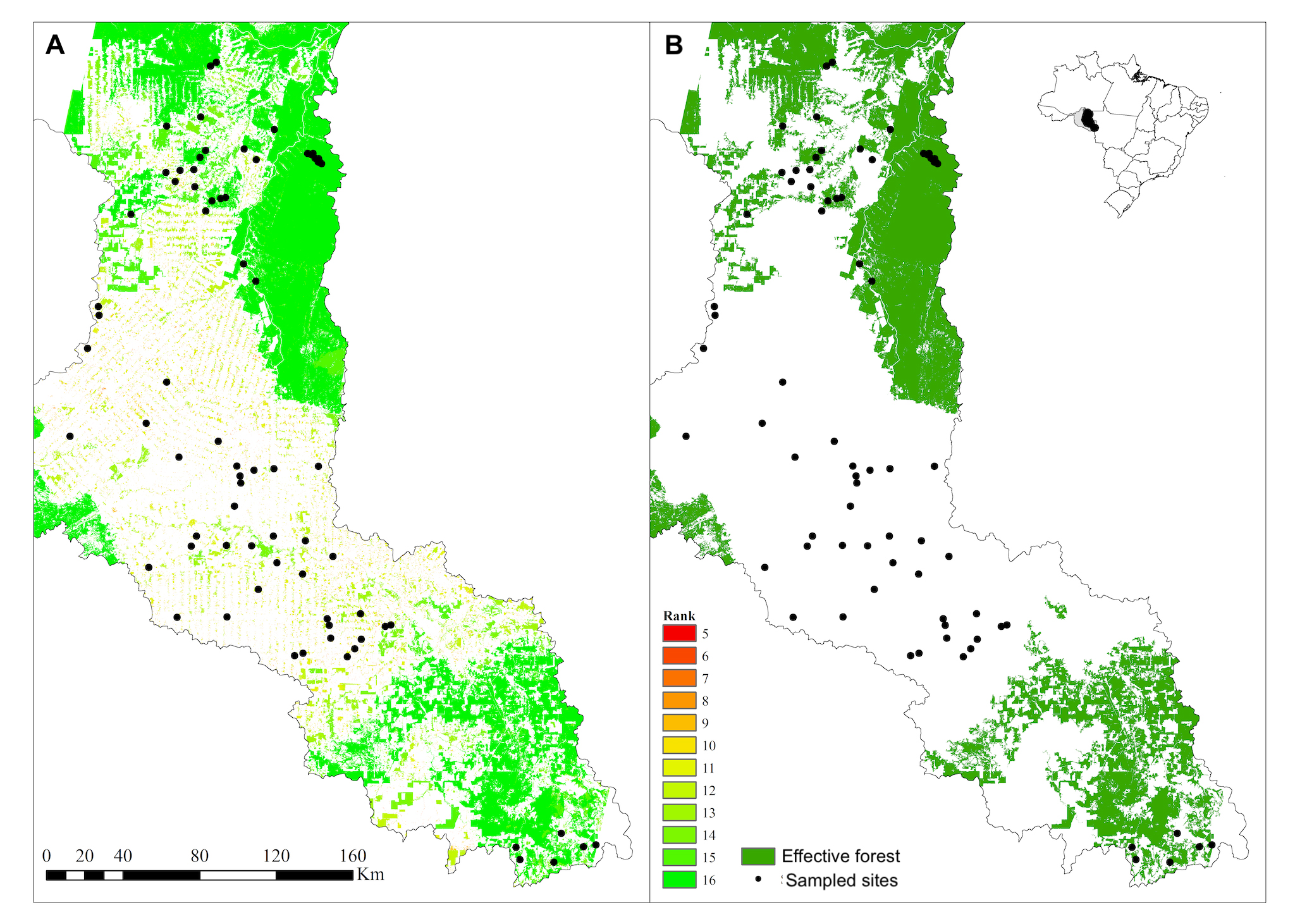Abstract
High rates of deforestation, either in the past or the present, affect many of the ecological processes in streams. Integrating deforestation history and the current landscape structure enhances the evaluation of ecological effects of land-use change. This is especially true when contemporary landscape conditions are similar but the temporal path to those conditions differs. One approach that has shown promise for evaluating biodiversity responses over time and space is the β-diversity partitioning, which combines taxonomic and functional trait-based approaches. We tested hypotheses related to stream fish assemblages’ turnover in watersheds with different environmental conditions and deforestation histories. We sampled fish from 75 watersheds in the Machado River basin, Brazil, and environmental factors were quantified at multiple scales. Taxonomic turnover was higher than expected by chance, whereas functional turnover was lower than expected by the observed taxonomic turnover, indicating that deterministic processes are structuring these assemblages. The turnover, and the environmental factors differed among watersheds with different deforestation histories. Besides being scale-dependent, turnover patterns are also likely dependent on land use dynamics and involve time-lags.
Keywords:
β-diversity; Deterministic processes; Landscape; Madeira River basin; Scale-dependency

 Thumbnail
Thumbnail
 Thumbnail
Thumbnail
 Thumbnail
Thumbnail
 Thumbnail
Thumbnail



